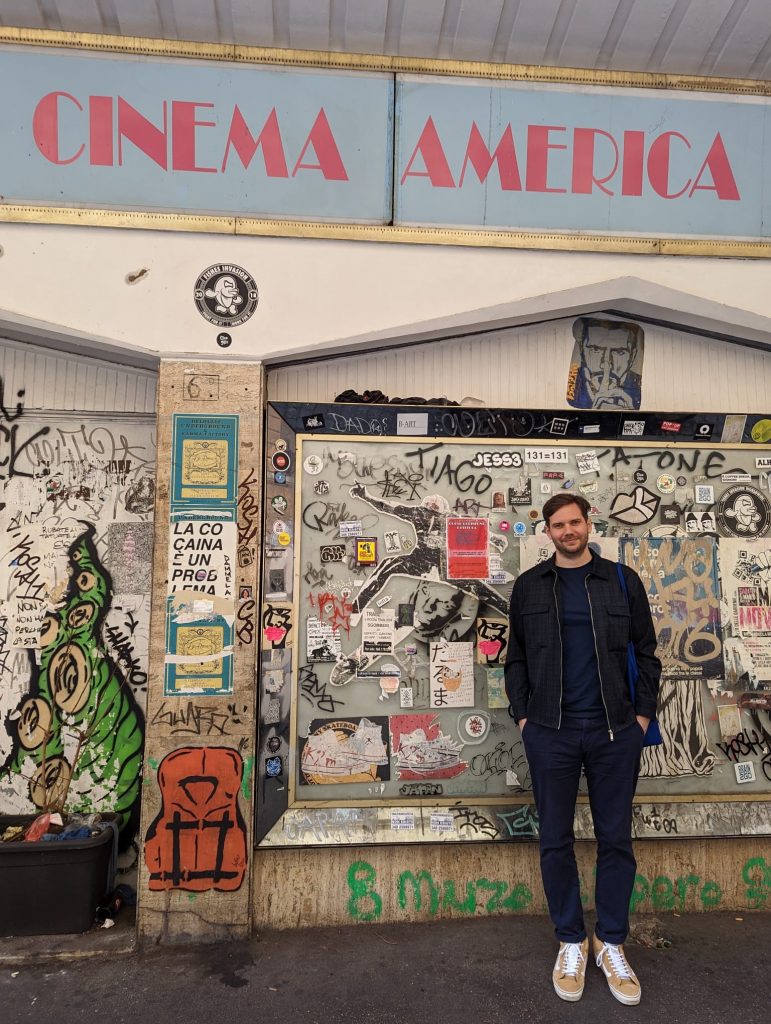
My PhD looked at the UK Independent Film and Video sector of the 1980s, in particular the Workshop Declaration, a unique funding model supported by the BFI, Channel 4 and the Regional Arts Associations. The model enabled regional film groups to work with a chosen community over an extended period of time to produce films or videos about issues that directly impacted them.
The community were involved at every stage of the filmmaking process; from conception to filming and editing through to distribution and exhibition. It was a unique approach built on trust where the community members were not subjects of the film but active participants in the filmmaking process itself. The films and videos made this way in the 1980s identified the relationship with a community as the foremost component within its approach to filmmaking. The model prioritised cementing links with the respective community groups before any other related creative undertaking. As community input was incorporated into every stage of the filmmaking process – research, scripting, shooting through to editing and exhibition – not only was trust between the workshop and community built but so was the accountability and the ability to maintain an audience.
As I have a particular interest in film, two case studies from the By All, For All: The Power of Partnership (Shaw, Mitchell-Baker 2022) report were of special interest to me as they are concerned with new approach to R&D through co-creation in community filmmaking. Make Film History: Opening Up the BBC Archives to Young Filmmakers is an R&D project that was delivered across Belfast, Glasgow, Leeds, and London that aimed to create a sustainable model for the licensing and creative reuse of archive film in education, allowing student filmmakers the opportunity to have access to over 200 BBC films to co-produce new narratives of social history, creating new stories and hidden histories from the past. The Bordered Youth: Analysing Citizenship and Identities in Post-Brexit Northern Ireland project, delivered in Derry and Belfast, also addressed the complex issues of citizenship and identity in the Irish Borders by connecting young people with conversations on post-Brexit and identity through filmmaking, exhibitions and showcases. It forged new connections between young people and policy makers and will generate new policy recommendations that will inform the future direction of the nation.
The 1980s Workshop Declaration funding model was a relatively short-lived approach and encountered similar barriers that the model of co-creation faces today that are outlined in the Creative Communities report. Small pots of funding were highly competitive and consequently thwarted collaboration between groups; trust with communities could take time to forge producing a quick, extractive, and exploitative dynamic when faced with commissioning deadlines; funding language and multi-partner structures could appear daunting to under-represented communities, and project successes captured through data or project narratives were not often shared widely or celebrated in the industry by the key funders. As we see today, due to the current funding structures, it can be difficult to capture the true contribution of community focused place-based approaches, and to capture the value and benefits they provide.
What is invigorating about the Creative Communities report is the recommendations it proposes to overcome these barriers, addressing new way of thinking about non-academic and community partnership in R&D to build an innovative and sustainable R&D eco-system. Fundamentally, the report focuses on the importance of communities and the role they play in the sustainability and growth of arts and culture in the UK. As underpinned in the Workshop Declaration, this is activity done with communities and non-academic partners rather than the partner just being the subject of research. It is this spirit of partnership and equality that has framed phase two of the Creative Communities Programme.
As part of our phase two activities, we will be curating and hosting a series of Policy Labs (one in London and in each of the four nations). The aim of the labs will be to foster closer connections with key cross-sector partners across the four nations, to discuss, consult and formulate new policy proposals of co-creation, while forging new devolved networks of communications to strengthen knowledge and skills. The labs will mobilise creative co-creation methods of policy formation to create an open and inclusive forum where interventions can be co-authored, valued and owned by everyone. As a key strategic outcome, the labs will produce briefing papers, reports and government submissions through joint policy networking events to highlighting areas for future AHRC investment and wider arms-length activity.
The Policy Labs are currently in development by the Creative Communities team – if you’d like to get involved, get in touch. And please do read the report – research that is by all, for all, means having everyone involved.
Brought to you by


